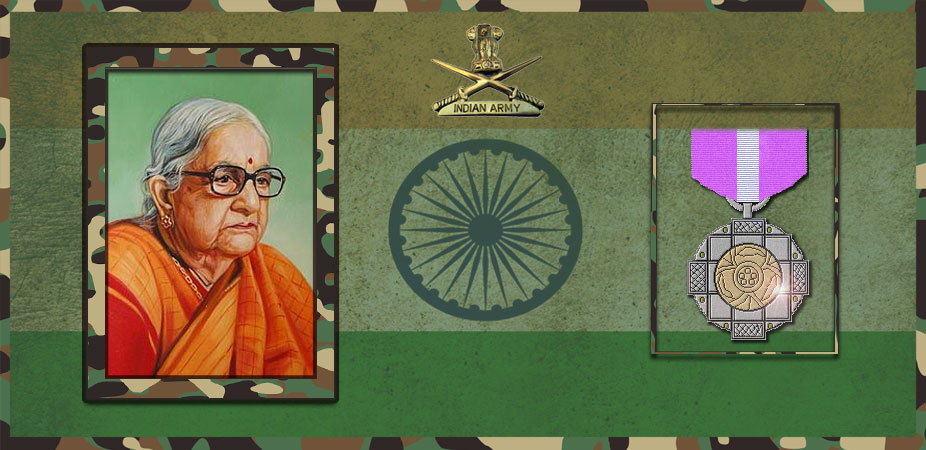Let's salute to our Indian Army together, We are proud to be Indian.
Let's salute to our Indian Army together, We are proud to be Indian.

Kamaladevi Chattopadhyay (3 April 1903 – 29 October 1988) was an Indian social reformer and freedom fighter. She is most remembered for her contribution to the Indian independence movement for being the driving force behind the renaissance of Indian handicrafts, handlooms, and theatre in independent India and for upliftment of the socio-economic standard of Indian women by pioneering the co-operative movement.
Several cultural institutions in India today exist because of her vision, including the National School of Drama, Sangeet Natak Akademi, Central Cottage Industries Emporium, and the Crafts Council of India. She stressed the significance which handicrafts and cooperative grassroot movements play in the social and economic upliftment of the Indian people. To this end she withstood great opposition both before and after independence from the power centres.
In 1974, she was awarded the Sangeet Natak Akademi Fellowship the highest honour conferred by the Sangeet Natak Akademi, India’s National Academy of Music, Dance & Drama.
Born on 3 April 1903 in Mangalore, Kamaladevi was the fourth and youngest daughter. Her father, Ananthaya Dhareshwar was the District Collector of Mangalore, and her mother Girijabai, from whom she inherited an independent streak, belonged to an aristocratic family from Karnataka. Kamaladevi’s grandmother was herself, a scholar of ancient Indian texts, and her a mother was also well-educated though mostly home-educated. Together their presence in the household, gave Kamaladevi a firm grounding and provided benchmarks to respect for her intellect as well as her voice, something that she came to known for in the coming years, when she stood as the voice of the downtrodden as well as the unheard.
Kamaladevi was an exceptional student and also exhibited qualities of determination and courage from an early age. Her parents’ befriended many prominent freedom fighters and intellectuals such as Mahadev Govind Ranade, Gopal Krishna Gokhale, and women leaders like Ramabai Ranade, and Annie Besant, this made young Kamaladevi an early enthusiast of the swadeshi nationalist movement.
She studied about ancient Sanskrit drama tradition of Kerala- Kutiyattam, from its greatest Guru and authority of Abhinaya, Natyacharya Padma Shri Mani Madhava Chakyar by staying at Guru’s home at Killikkurussimangalam.
Tragedy struck early in life, when her elder sister, Saguna, whom she considered a role model, died in her teens, soon after her early marriage, and when she was just seven years old her father died as well. To add to her mother, Girijabai’s trouble, he died without leaving a will for his vast property, so according to property laws of the times, the entire property went to her stepson, and they only got a monthly allowance. Girijabai defiantly refused the allowance and decided to raise her daughters on her dowry property.
Her rebellious streak was visible even as a child, when young Kamaladevi questioned the aristocratic division of her mother’s household, and preferred to mingle with her servants and their children wanting to understand their life as well.She was a great freedom fighter.
The Government of India conferred on her the Padma Bhushan (1955) and later the second highest civilian award, the Padma Vibhushan in 1987, which are among the highest civilian awards of the Republic of India.She also received the Ramon Magsaysay Award (1966) for Community Leadership. She was awarded the Sangeet Natak Akademi Fellowship, Ratna Sadsya, the highest award of Sangeet Natak Akademi, India’s National Academy of Music, Dance and Drama, given for lifetime achievement in 1974.
UNESCO honoured her with an award in 1977 for her contribution towards the promotion of handicrafts. Shantiniketan honoured her with the Desikottama, its highest award.